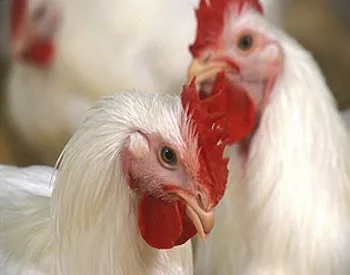
NASHVILLE – The Tennessee State Veterinarian is reporting a suspected detection of highly pathogenic avian influenza (HPAI) in West Tennessee. This occurrence affects a commercial chicken facility in Gibson County.
The Milan Mirror-Exchange this morning reported that federal and state authorities were on site at a Tyson barn on Germantown Rd. in Milan. They were assisting in containment and removal of infected birds.
Following a sudden spike in deaths in the flock, testing at the Breathitt Veterinary Center Laboratory in Hopkinsville, Ky. determined the cause is likely a form of highly pathogenic avian influenza. Sequencing to determine the specific influenza strain is pending.
“Although we are awaiting final confirmation, we are confident the illness affecting this flock is HPAI,” Dr. Samantha Beaty said. “HPAI continues to circulate in our environment, particularly in the wild bird population. As always, we strongly encourage people who own birds to practice strong biosecurity to protect their flock.”
HPAI is a highly transmissible disease known to be deadly for domesticated fowl. Fowl can be exposed to HPAI through human interactions and through contact with wild birds.
Animal health officials have established a 10 kilometer (6.2 mile) control zone surrounding the affected facility. Within the zone, poultry will be tested and monitored for illness and poultry movement requires permitting until the zone is released. Animal Health staff members are reaching out to poultry owners within the control zone to explain the situation, answer questions, and provide information. If you have concerns about your location, please email Animal.Health@tn.gov or call (615) 837-5120 and staff will help determine if your flock is within the zone.
Although HPAI does not pose a food safety risk, no infected poultry will be allowed to enter the food supply. Poultry and eggs are safe to eat when handled and cooked properly. The risk of human infection with avian influenza during poultry outbreaks is very low. In fact, no transmission to humans was reported during the outbreak that affected backyard and commercial poultry farms in Tennessee in 2022.
Tennessee Department of Ag photo.




